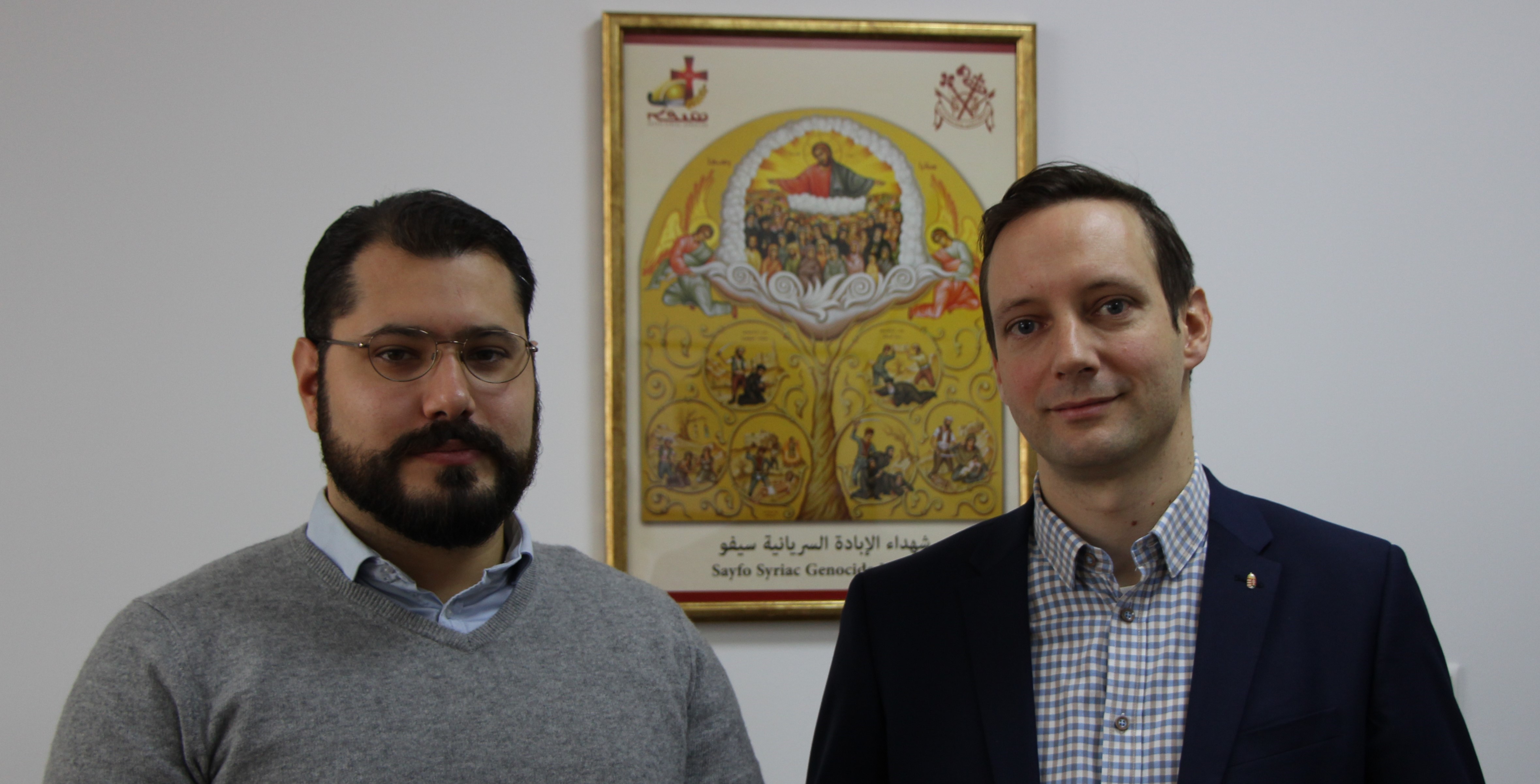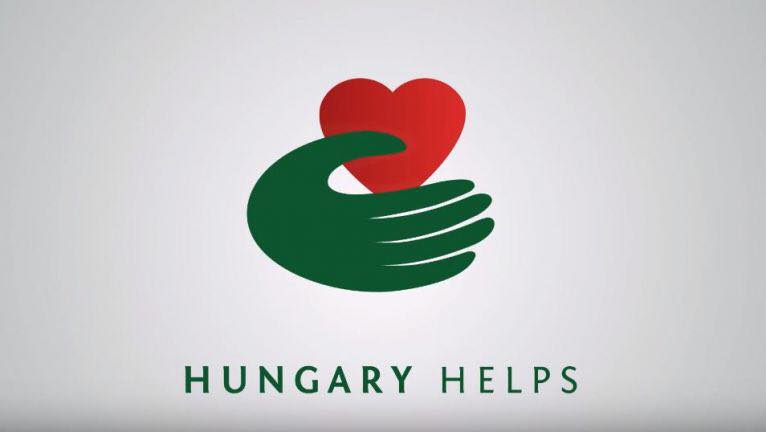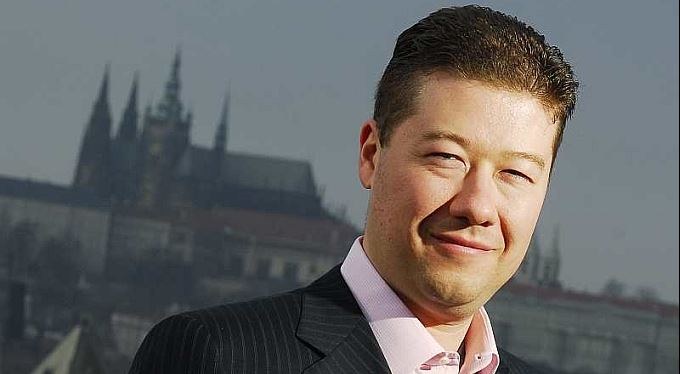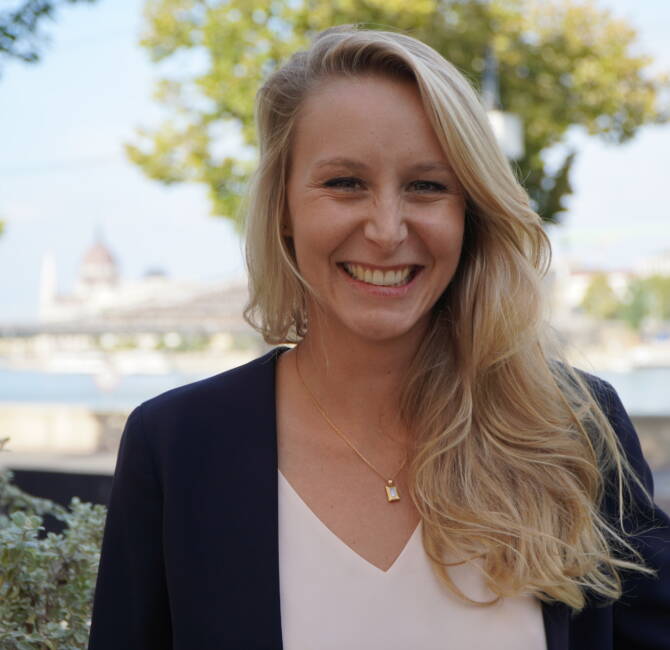Interview with Tristan Azbej, Hungary’s State Secretary for the Aid of Persecuted Christians and for the Hungary Helps Program: “We are confronted bythe fact that Christianity is the world’s most persecuted faith.”
Hungary – In 2016, the Hungarian government created a Secretary of State position aiming to help persecuted Christians. This exclusive provision was motivated primarily by two factors:First, the coming into force of a strategy aiming to bring help where it is needed, instead of following the pro-migration policy of the West;and second, the practical application of Christian democracy, as previously defined by the Hungarian Prime Minister, Viktor Orbán. In 2017, the government also launched the Hungary Helps Program, by which the Hungarian government aimed to offer aid in three areas: humanitarian, migration, and religious freedom. In 2018, the Parliament approved this program, and in September of the same year Tristan Azbej became State Secretary for the Aid of Persecuted Christians and for Hungary Helps.
An interview conducted in Budapest by Ferenc Almássy.

Thank you for this interview! We have mainly foreign readers, and it is of particular interest to Western Europeans that a government has such a State Secretariat that deals clearly and openly with Christians. For the French, this may even be incomprehensible because of the Laïcité (strong ideological secularism) that exists in France. Why, in twenty-first century Europe in which secularism is increasing by the day, has Hungary decided to set up a position dedicated specifically to persecuted Christians?
Hungary is a Christian country and we have a Christian democratic government. The Hungarians have entrusted us three times in a row with a two-thirds parliamentary majority to represent this creed. We do not contradict the principle of secularity, because in Hungary – unlike in many other EU countries – there is no state religion; the government does not want to interfere in questions of faith or in the relationship between man and God. Hungary’s traditions and society – indeed, its entire national identity – are based on Christian social values and ethics, which are also in harmony with Roman law and Greek philosophy. If we are criticized by those who strictly adhere to secularism, we answer that in Hungary the state and church are separated, but not divided; cooperation is very strong in the social fields. Unfortunately, we are confronted with the fact that Christianity is the world’s most persecuted religion, while at the same time the 2015 migration wave brought humanitarian disasters from conflict areas closer to our region. The Hungarian government has therefore decided not only to keep an eye on its own security postures and its European obligations, but also to help restore the stability of the emigrants’ countries of origin. The State Secretariat and the Christian Aid program were launched because Christians are one of the most vulnerable communities in the Middle East and the Sahel, and because we believe that the Western world, with its Christian cultural roots, has an important moral obligation to care for persecuted Christians. We want to set an example for this.
Are you a Christian?
Yes, I am.
Can someone who is not a Christian fulfill your function?
The essence of Christian democracy is not primarily faith itself, but the protection of Christian culture, the acceptance of Christian social teachings, or, if you wish, Jesus’ teachings: human dignity, the protection of the family, neighborly solidarity, and subsidiarity. The solidarity we offer to Christians in other nations is not based on faith, but on the human in general:humanity.
You said earlier that the Hungarian state is secular but cooperates with the Churches, at least with those it recognizes. How does the state decide whether a particular Christian Church is acceptable or not? In addition to the Roman Catholic, the Orthodox, and the Reformed Churches, there are a number of smaller Protestant or neo-Protestant Churches. What do you think about these?
Let’s be clear: My mission in government is to help persecuted Christians. There is a separate State Secretariat for the Affairs and Relations of the Hungarian Churches. With regard to helping persecuted Christians, our approach is ecumenical, as those who persecute Christians do not differentiate between Orthodox, Catholics, or Protestants. Perhaps in some countries where Christians are discriminated against, there are some older Eastern communities that are better tolerated, but they are also often relegated to the background. The Islamic State and Boko Haram have killed Pentecostals as well as Orthodox Christians, and ecumenism is strengthened by martyrdom. We cannot distinguish between confessions that are united in persecution. We support the Orthodox in Syria and the Orthodox in Iraq as well as the Catholics in Nigeria. One of our most recent projects, which was only recently announced, explicitly supports the Protestant, Evangelical, and Reformed communities in Syria.
If you help persecuted Christians, you first need to clarify who is being persecuted and who is a Christian. How do you do that?
If we wanted to describe our activity very precisely, our name would be the State Secretariat for the Salvation of Persecuted, Threatened, and Oppressed Christians. By persecution, we therefore do not simply mean cases in the classical sense – at least those previously qualified as persecution by international law, which was defined as being when state authorities persecute Christians and commit atrocities against Christians. Moreover, these are relatively rare cases; North Korea would be a good example because in this country, the authorities sentenced to death or deported people to labor camps simply for owning a Bible. This is nearly equivalent to a death sentence. Similarly, when terrorist organizations threaten Christians or commit bloody attacks, this is also persecution. Additionally, we are expanding this category to include discrimination in all areas of life. After evaluating the situation, there can be different types of support. For example, when we do not have the possibility to put pressure on a distant country through diplomatic means, we try to argue for and support initiatives towards religious freedom in international forums, including our own efforts to defend human rights. Generally, we can offer humanitarian means to protect Christians. Our programs are diverse, and provide quick relief after humanitarian disasters or terrorist attacks.
Besides this, we have launched extensive humanitarian aid programs for Christians fleeing genocide or other armed conflicts in certain areas. For example, we have such projects in the Middle East, Africa, and Nigeria. We try to ensure that these people, who are living in miserable conditions in refugee camps, can return home as soon as possible. We also try to reduce the time they spend there, because when these people stay in these camps for longer, they eventually lose hope and then set off to join the waves of migration – and that’s not good for them, either. Immigration has many other negative effects on society as well, and we would also like to prevent these. If these people end up leaving, it is bad for their community of origin as well. As the Melkite Bishop of Aleppo, Jean-Clement Jeanbart, said, immigration and the organizations that support immigration complete the Islamic State’s destructive work. Thus, from a financial perspective, most of our programs aim to rebuild damaged or destroyed infrastructure, schools, hospitals, and churches. We have such programs in Iraq and Nigeria. We have also set up a scholarship program at Hungarian universities for young Christians who are persecuted, discriminated against, or who are under threat. The logic and goal of this is so that young people who cannot enjoy higher education in their own countries can come to study here. Thus, they study at Hungarian universities as part of a scholarship program. This program is in its second year and will benefit nearly 170 scholarship winners. They will ultimately return home and participate in the reconstruction of their communities as soon as they have acquired European-level knowledge.
Since 2015, we have often seen that many people calling themselves Christians are actually not. There are even organizations teaching them how to fake this so that they can more easily benefit from gaining asylum in Europe. In fact, there is no document that can confirm whether a person is a Christian or not.
This question and its answer can be divided into two parts. Our program is called Hungary Helps, which means literally that Hungary helps – but not only Christians. Our support for Christians is emphatic, but not exclusive. Hungary’s humanitarian policies are in many ways similar to those of other developed countries, helping people in need around the world without regard to religion or ethnicity. As far as the other part of the question is concerned, we do not consider mass immigration to be advantageous; it is even explicitly harmful if done illegally.
The government is always of the opinion that aid must be provided where it is needed, and that these problems should never be imported into Europe. We help people to stay in their place. We reject the violation of sovereignty and the compulsory quotas that Brussels wants to impose on us. We respect the international conventions to which Hungary has voluntarily acceded. We also act as a special asylum authority. Unfortunately, people who turn to the Immigration Service in Hungary often give false information about their refugee status. In such cases, the asylum authority will contact us, and together we examine the merits of a particular application. In doing so, we draw on research capacities that are one of the most important resources of our State Secretariat. Since its founding, we have been observing the situation and reality? of Christianity in these regions.
What is the purpose of this program, and what is the Hungarian government’s interest in it?
Our goal is the protection of Christian culture; on one hand it is a patriotic goal, and on the other a humanitarian one. We serve our national interests as well as humanity’s interests. We endeavor to make a contribution with the resources of a small country. The 2015 wave of migration hit Hungary with more than 10,000 illegal entries per day across the Serbian border, which is an external Schengen border. Therefore it is our duty to protect this border. Protecting national borders from illegal immigration is a national interest, as we see that parallel societies have already developed in Western Europe. In terms of terrorism, we do not say that all immigrants are terrorists, but even a small group that can radicalize others and organize is enough to launch attacks in Europe. This is what we want to protect Hungary and Europeans from. We want to protect our society in its present form, which is itself diverse in its homogeneity. Peoples who have successfully integrated and accepted our common values have joined the Hungarians over the centuries. Incidentally, I myself am a Hungarian of Armenian and French descent. The integration capacity that we have here is not visible in Western Europe. That is why we have announced a sensible, fair, and strict migration policy and expanded our humanitarian aid to address migration’s root causes. We want to make sure that the people living in these areas are not forced to leave their countries. Thus, we support all communities, but especially Christian communities as they are most at risk and need the most resources.

So it’s not just about building the country’s image?
Hungary has been a Christian country for more than a thousand years. Europe was also created by Christian culture. Remembering it to is not a question of image, but of self-defense and humanitarian concern. We are currently running larger programs in five countries. In only two years, we have provided 6.8 billion forints (around 20 million euros) primarily for the support of persecuted Christians. This is a significant contribution compared to Hungary’s size. According to our calculations, we have managed to help 35,000 people to remain in their country or else to be repatriated.
What would you emphasize?
Definitely the story of Tel Askuf near Nineveh in northern Iraq. This has been the cradle of and home to Christians for 2,000 years, and when the Islamic State conquered the region in 2014, the 1,300 Christian families who were living there had to flee. Until the area was liberated in 2016, more than 900 buildings were damaged and the village was completely depopulated. Through Hungary Helps, we provided 580 million forints and about 2 million euros for the Iraqi Christians, and a thousand families were able to return. The fact that the village of Tel Askuf was renamed “The Daughter of Hungary” shows what this Hungarian help means to the people. This is an important fact at a time when unworthy attacks are being made against our policies. It is important that international organizations are made aware of this. Since there is a village on the Nineveh plateau called the “Daughter of Hungary,” we want there to also be a “Son of France” or a “Grandson of the United Nations.” We want our example to be followed. It may even be a humanitarian competition with other governments that are ahead of us and which are outperforming our activities.
Is it not contradictory to primarily help those to remain in their country who, as Christians, could integrate more easily into Europe than other migrants? Should we not rather help those who are more problematic from this point of view?
We help everyone we can help – not just Christians, but also other communities living alongside Christians. That’s how we design our programs. It is not just Christian displaced persons who can come to a clinic for a treatment that we have funded, but we also do not discriminate against other communities. We have even been criticized for this. A diplomat from a Western country has accused us of this, and when I asked him what they were doing in northern Iraq, he told me that they were organizing workshops for interfaith dialogue. It is important to note that we do not want to impose our agenda on others. This is typical of Left-liberal governments. It is a bad practice, for example, to distribute condoms to areas in Africa that have undergone humanitarian disasters in the belief that it can help the population in the long term. There is a need for very different things. There have even been cases where humanitarian aid has been linked to LGBT rights. By contrast, we do not want to be smarter than the community we support. We always ask the leaders of the local Christian communities how we can help them. In 99% of cases, the answer is to help them remain in the country of their ancestors. We do not impose the agenda of George Soros’ Open Society on them, which does everything possible to reinforce migration.
Are you working with the local authorities in Syria?
We do not work with them. In our aid policy, we do not use any intermediaries, large agencies, or international programs, nor governments or local authorities. We do not want to help the agencies or the authorities, but the needy.
Do you have diplomatic problems or conflicts with the local authorities as a result?
Hungary adheres to the EU’s common foreign policy towards Syria. We respect the sanctions that combine reconstruction aid with democratic guarantees. Our partners in Syria are the churches, but also the religious organizations in Syria, and we primarily support programs that fall within the field of humanitarian aid. Since we do not have a diplomatic channel in Syria, we do not share official information, but in other countries we inform the authorities and governments of our activities in a spirit of mutual respect and trust.
What about China? Bilateral relations are growing closer, but there has been disturbing news about the situation of Christians there.
The diplomatic relations between Hungary and China are strong, developing further and based on mutual respect. Governments discuss all reservations honestly and respectfully, as in for example human rights, but not in public. Our goal is not to label or make any other statement about China that violates mutual respect. We look to the future with confidence, as we also do toward the interim agreement between the Holy See and China.
You said earlier that you would be happy if other countries followed the Hungarian example. Do you think there is any hope for that?
We cannot solve this crisis alone, and it is therefore a priority of our mission to encourage other countries to respond to this humanitarian disaster either in cooperation with us or on their own initiative. It was a difficult diplomatic endeavor and seemed rather hopeless at first, as we did not even make it to the starting line. First, the mere fact that the persecution of Christians affects 245 million people worldwide is still not yet well-known. Second, to say that Christianity is not an aggressive and expansive religion does not fit in with liberal politicians’ rhetoric. Third, some Muslim-majority countries initially tried to deny that it was happening. But over time, we have found our allies. It is no surprise that Poland, our partner in the Visegrád Group (V4), launched a joint aid program last summer. The aim was to support an orphanage run by the Syrian Orthodox Church in Homs. However, we are also in advanced and promising negotiations with Czech and Slovak governmental representatives. Our goal is to launch a V4 Helps program instead of or in addition to Hungary Helps. The other relationship we have established concerns the United States, whose government, for ideological and political reasons, is committed to protecting persecuted Christians. This was initially the case at the political level: Vice President Mike Pence announced last year that the US is launching a separate program to help Christians in northern Iraq. Since then, other leading American officials have recognized the Hungarian program as a model. The exchange of experience and common considerations began in early 2018. We are currently in the phase of selecting concrete projects with the American development agency USAID. [In mid-November 2019, Tristan Azbej wrote at About Hungary that the project of cooperation succeeded, especially resulting with the reconstruction of Qaraqosh, ed.]



